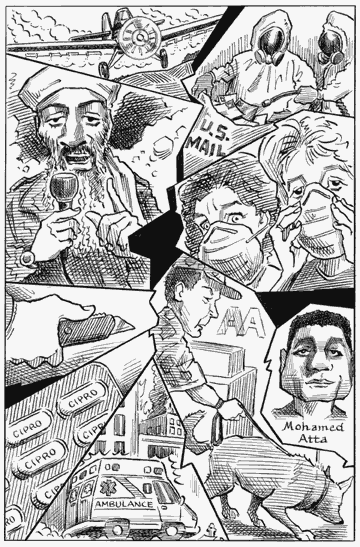- Contemporary
- Security & Defense
- Terrorism
- Politics, Institutions, and Public Opinion
- History
![]()
In a crisis, such as the terrorist attacks on September 11, it is natural to look to our government leaders to set the course. But we’d be making a terrible mistake if we relied too heavily on top-down political solutions, ignoring our real strength, the decentralized ingenuity of the American people.
Consider just one example. In the weeks after the attacks, we wrestled with ways of improving airport security. In Congress, two fundamentally different possibilities emerged. Either we could federalize airport security, making it the job of the government, or we could permit airport security to remain in the private sector, using the government to mandate higher standards, to delegate the responsibility for meeting such standards to private security firms, and to monitor the performance of private sector solutions. Which methodology should we rely on for safety in the air? One similar to the United States Postal Service, a model that has regularly been criticized for costly and inefficient service that too often proves unreliable? Or the competitive alternative that led creative individuals to introduce FedEx and UPS?
 |
| Illustration by Taylor Jones for the Hoover Digest.
|
In the end, Congress chose the former. I realize that we are in a crisis and that the American public looks to government’s leadership to ensure our well-being, but I am dismayed that we continue to settle for inferior solutions because they are seen as politically superior. Why should we settle for less? The challenge for our government is to stop ducking its responsibility, instead dedicating itself to finding the best solution to the problem of airport security—uncompromised safety at the lowest cost possible—and to other problems like it that are sure to arise. Overwhelmingly, the best solutions will be competitive solutions.
|
"Over the longer term, we must look to the ingenuity of our people to address the many elements of this crisis." |
Economists around the world generally understand and applaud the workings of competition and private markets. It is difficult to make the case for centralized decision making of the kind present within socialism, certainly for the kind of command economies that once dominated the Eastern bloc. We should be suspicious of government solutions that entail government agencies and institutions directly managing an enterprise. We need to expand the ingenuity of the American citizenry at large, encouraging the development of solutions in the marketplace. Is this not the order of the day?
It is natural for us to turn to our government leaders in a time of crisis. But it is not a foregone conclusion that our citizenry expects the government to centralize more of the workings of our society. Over the longer term, we must look to the ingenuity of our people to address the many elements of this crisis. The leadership we need should create institutions structured to help us accomplish our aims, not have us sit back and expect government "engineers" to solve our problems. Decentralized activity can respond to shortcomings with a speed and entrepreneurial energy that government can seldom match. Such approaches will have a great deal to contribute to our nation in the days ahead.







